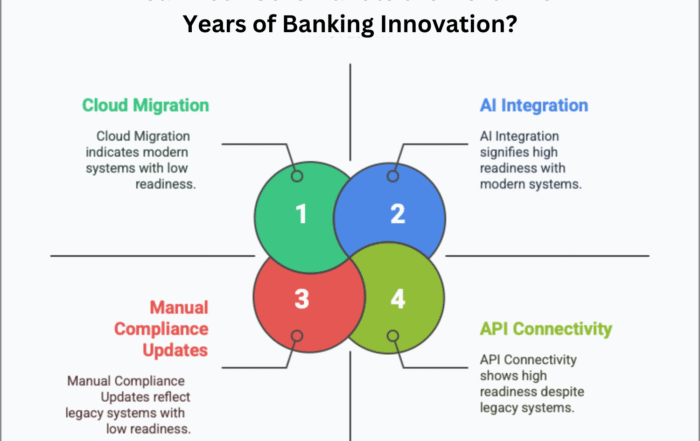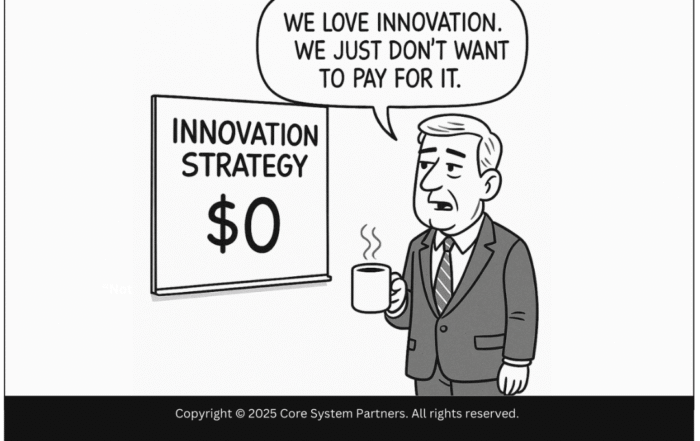
Highlighting the risks of hiring inexperienced project managers for banking transformations, and advocating for investing in seasoned professionals to ensure successful outcomes and long-term savings.
In the fast-paced and ever-evolving world of banking, embarking on major projects like launching new digital platforms or upgrading core systems is no longer just an option – it’s a necessity. However, with budget pressures looming, banks may be tempted to cut costs by hiring junior, lower-cost project managers. But this seemingly cost-effective decision can backfire, often costing institutions more in the long run. As a veteran program and project professional, I’ve witnessed the pitfalls of this approach time and time again.
The Perils of Inexperienced Project Managers
Hiring an inexperienced or junior project manager in an attempt to save money might seem like a smart move initially, but it comes with significant risks:
- Lack of Banking Know-How: Banking is a complex industry, with intricate regulations, legacy systems, and fragmented data. Inexperience in this domain can lead to costly missteps and oversights.
- Weak Vendor Management: Banks rely heavily on external vendor partners, and an inexperienced project manager may struggle to hold these teams accountable, leading to delays and subpar deliverables.
- Insufficient Leadership: Major projects demand strong leadership to coordinate resources effectively. Young project managers often lack the necessary presence and soft skills to navigate complex stakeholder dynamics.
- Poor Risk Avoidance: Spotting and preventing potential issues requires seasoned expertise. Inexperienced project managers may miss critical risks, causing problems that could have been avoided.
- Missed Deadlines and Budget Overruns: Inadequate planning, task management, and oversight can lead to delayed timelines and inflated costs.
- Underwhelming Deliverables: A lack of rigor in requirements gathering, testing, and quality assurance can result in solutions that fail to meet business needs.
- Damaged Relationships: Failed projects can erode trust between business and IT stakeholders, hampering future collaboration.
These pitfalls spell trouble for any complex banking project and can quickly negate any initial cost savings.
The Hidden Costs of Inexperience
Ironically, hiring junior project managers in an attempt to save money often inflates expenses elsewhere:
- Longer timelines due to mismanagement, missed milestones, and misalignment
- Costly fixes for avoidable downstream issues
- Increased vendor fees due to shifting deadlines and uncontrolled scope creep
- Lost efficiencies from flawed solutions that miss business needs
- Revenue impacts from late or incomplete capability rollouts
- Additional overhead for micromanaging underperforming project managers
- Business opportunity costs from projects delivering too little, too late
When these expenses accumulate, discounted project manager rates suddenly appear expensive. Minor upfront savings pale in comparison to the downstream costs their inexperience creates.
The Value of Seasoned Banking Project Managers
In contrast, investing in experienced, specialized banking project managers often pays dividends:
- Deep understanding of banking business issues and systems
- Ability to guide complex projects smoothly from vision to launch
- Insight to catch risks early and address them proactively
- Discipline to maintain timelines, budgets, and quality standards
- Expertise to build solutions right the first time
- Leadership and soft skills to align stakeholders and resolve conflicts
- Strong communication skills for transparency and robust partnerships
- Strategic perspective beyond tactical project execution
Their specialized expertise, meticulous execution, and leadership justify the higher cost – and those same strengths help avoid far greater downstream expenses.
While the temptation to cut costs by hiring junior project managers may be strong, it’s crucial to consider the long-term value, not just short-term savings. Experienced, seasoned banking project managers pay for themselves many times over by skillfully guiding projects to success, minimizing risks, and maximizing returns on investment. In the high-stakes world of banking transformations, this is an investment well worth making.
Found this article interesting? Check out these three related reads for more.
- Series (6/10): Why core banking transformations often fail Lack of experience
- 10 reasons why core banking transformations are not just IT projects
- Core banking system implementation challenges and success strategies
#ProjectManagementInBanking #BankingTranformationMetrics





